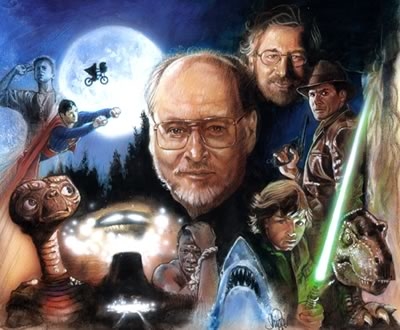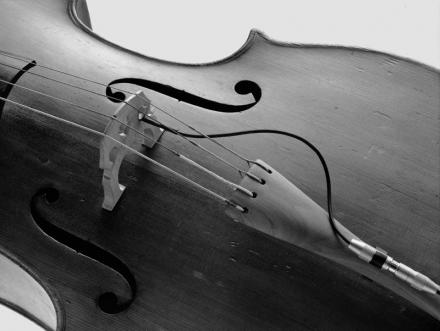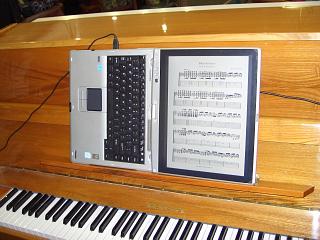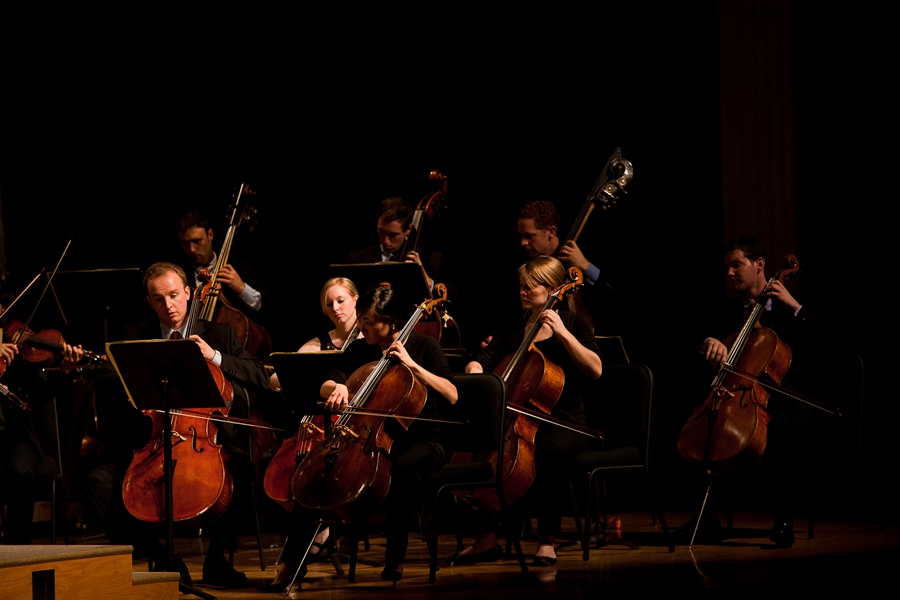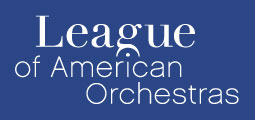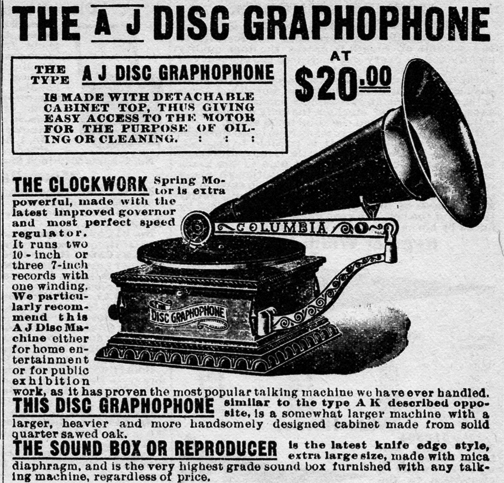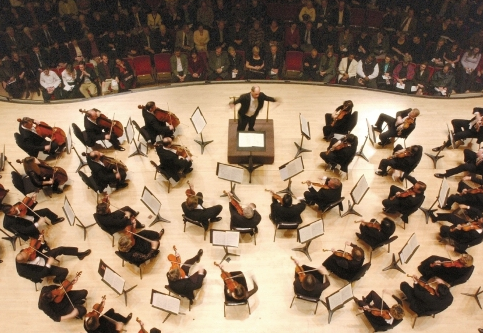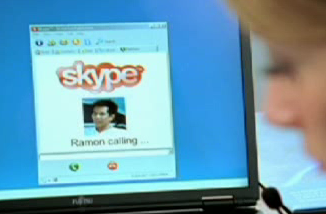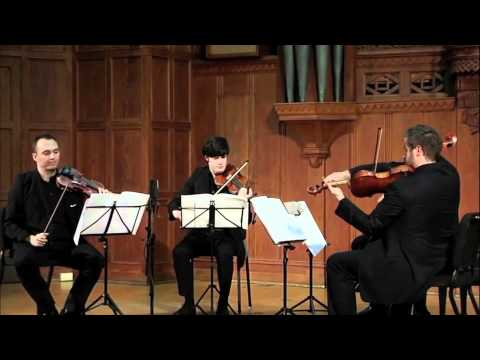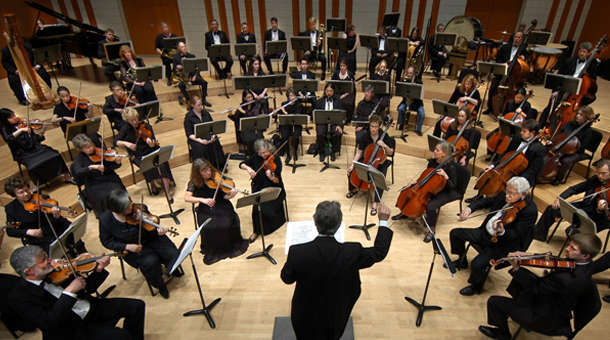Separate But Equal
November 2, 2012In this article, cellist Peter Sachon talks about the general trends of orchestral programming in the United States and how he feels they could be improved. He points to the separation of subscription and pops programming, and the general lack of “non-traditional” programming, which he suggests could include contemporary music, film music, musical theater, and more. Programming is certainly an important piece of the puzzle that needs to be considered when looking at the future and how we will engage our audiences. And in this article, Peter Sachon offers a compelling argument for innovative and bold programming.
Selected Musings from a Musician's Perspective
September 4, 2012In this article, cellist Sophie Gledhill presents three distinct “musings” from her vault of interesting ideas. She talks about an issue that virtually all musicians face – how we hear a performance differently when we listen back to a recording of ourselves. It’s an interesting phenomenon, and one which she wants to tackle. She also talks about the trajectory of playing as part of a group and presents some interesting thoughts on how to view our roles as individual musicians amongst a larger ensemble. Finally, Gledhill attempts to support her personal theory that music “is the superior art form.” An interesting read that you will enjoy! – Steve Danyew
Forefront of a Revolution: The Integration of Modern Technology in Classical Music
August 3, 2012In this article, cellist Zachary Preucil presents a convincing case for the integration of technology in classical music. Preucil and those he interviews are careful to point out that technology will not replace the wonderful live music experiences that we all love, but rather provide myriad opportunities for innovation and improvement of what we do. Enjoy this thought provoking read!
Finances of a Fledgling Festival
July 2, 2012Scott Lykins is a creative and enterprising young musician who decided a couple of years ago to start the Lakes Area Music Festival in his hometown of Brainerd, MN. Due to Scott’s tireless efforts to present music to his local community, the festival quickly flourished. Along the way, Scott has learned how to raise money and leverage resources so that the Festival’s activities can be completely free of charge. In this article, Scott discusses his experiences, and uses the Lakes Area Music Festival as a case study to show how others might start similar initiatives and plan for financial viability. He outlines private sources of revenue, corporate support, granting agencies, and more. Scott’s article is a compilation of very useful information related to funding for music initiatives – take a look!
Spotlight on the League of American Orchestras: How the League Benefits Symphonic Musicians
June 21, 2012My first association with the League of American Orchestras was back in 1977, when I attended a conducting workshop (as a violist in the orchestra) run by the League (then known as the American Symphony Orchestra League or ASOL) in Orkney Springs, Virginia. Richard Lert was the principal conducting teacher; at 94 he was an amazing link between 20th century conducting styles and those of the Romantics such as Arthur Nikisch. Indeed, Maestro Lert was Brahms’ godchild. Lawrence Leighton Smith assisted Maestro Lert during the workshop.
The workshop was held at a “hotel” that had been a hospital during the Civil War, and we all joked that there were no right angles to be found. I returned the next summer as well, and got to know Cathy French, later to become President and CEO of the League, and Charlie Thompson, a horn player and son of Helen Thompson, who was the League’s first Executive Director. He told me that his mother had intentionally named the organization ‘American Symphony Orchestra League – ASOL’ instead of ‘Symphony Orchestra League of America – SOLA’ “to keep them honest!”
In the intervening years, I have frequently attended League conferences when the conference was in a city where I had a friend to stay with. (Registration at League conferences is free for musicians who play in member orchestras.) When I became involved in ROPA (Regional Orchestra Players’ Conference) in the late 1980s, I was quite surprised to learn of the enmity in which the League was/is held by so many symphonic musicians. Rather than a service organization for orchestras of all sizes, ASOL was seen as a management organization, training managers in anti-union tactics. It was a common belief back then that managers went to the annual ASOL conference to get their “marching orders” as they headed for the negotiating table.
During Cathy French’s tenure as President, musicians were invited to serve on the League Board in 1983; Fred Zenone, former ICSOM chair, was the first musician Board member of the League. The relationship between musicians and the League really began to change in the 1990s, when musicians were invited to attend Conference at no charge. Chuck Olton became the League’s President in 1997; coming from an academic background, Chuck was determined to end, or at least lessen, the animosity between musicians and the League. I met him at a ROPA conference when I was ROPA VP; he attended the ICSOM conference that same year. Later, Henry Fogel invited ICSOM and ROPA to have a more formal liaison with the League, but his invitation was declined.
Since my early involvement, the League has changed its name in an effort to rid itself of its unfortunate acronym, has created a musician track at Conference, and has six musician board members (current symphonic members: Gloria DiPasquale – Philadelphia Orchestra; Robert Levine – Milwaukee Symphony; Robert Wagner – New Jersey Symphony; and Tina Ward – St. Louis Symphony, plus Jennifer Higdon, composer, and David Alan Miller, conductor).
But I am saddened and puzzled when I still hear colleagues blaming “ASOL” for a difficult negotiation. It is certainly true that the League’s Conference provides an opportunity for managers of similar-sized orchestras to meet in private – indeed a large part of Conference is the constituent meetings: Executive Directors, Development Directors, Marketing Directors, Operations Directors, Artistic Directors, Board Members, Volunteers, Musicians, etc. The League enables these conversations to happen, but they certainly do not dictate what is said during these meetings.
I interviewed the senior staff at the League just before the June Conference, and asked each to describe how his/her office benefits symphonic musicians. I thought I was pretty conversant with what goes on at the League, but I was impressed by the breadth of their activities on behalf of professional musicians.
Music Through the Ages of Technology
June 1, 2012As a creator of music in the 21st century, I find myself living during an immensely significant time. There are many new technological breakthroughs that are directly influencing music, how we perceive it and how we create it. Throughout the ages, music and art went hand in hand with politics, technology and most aspects of […]
The Universal Language: Evangeline Benedetti, Former Cellist with the New York Philharmonic, Puts It All into Perspective
May 3, 2012Carter Brey, principal cellist of the New York Philharmonic, interviewed his colleague Evangeline (Van) Benedetti, who retired from the orchestra in 2011 after 44 years in the cello section. She was the second woman to receive a tenured position in the orchestra.
This article first appeared in the March 2012 issue of Allegro, the magazine of the New York City musicians’ union (AFM Local 802). It is reprinted with permission. For more information, see http://www.Local802afm.org]www.Local802afm.org.
A Personal Reflection on the Importance of Technology
May 2, 2012Conductor Lauren Denney Wright recently used Skype to include a composer in her college band rehearsal, even though the composer was hundreds of miles away. The composer was able to hear the rehearsal, give feedback, and talk with the students. This is a great example of how new technologies can make an impact on educational situations, and also make certain tasks and objectives more efficient. Certainly listening to a rehearsal via skype is not the same as listening live and giving feedback in the room. However, if the person could otherwise not be a part of the rehearsal, it seems like a great solution. In other words, technology will not replace important human interactions, but will provide a great supplemental tool. Wright’s story is an inspiring example of how we can embrace technology and use it to bring people together.
Diversifying Your (Musical) Portfolio: TimeOut Chicago Writer and Spektral Quartet Violist Doyle Armbrust Forges an Unlikely Path
April 2, 2012In this article, Rhett Del Campo provides a compelling profile of the Spektral Quartet and violist Doyle Armbrust. Del Campo discusses the history of the innovative Chicago-based Spektral Quartet and specifically violist Doyle Armbrust’s views on his life as a freelance musician and member of the Quartet. Armbrust has created a unique freelance career comprised of performing in a variety of musical settings as well as writing for TmeOut Chicago. Del Campo and Armbrust both provide important thoughts on freelancing, music criticism, and innovative thinking in an evolving musical world.
Book review: "The Perilous Life of Symphony Orchestras: Artistic Triumphs and Economic Challenges" by Robert J. Flanagan (Yale University Press, 2012)
March 4, 2012Bruce Ridge, Chair of ICSOM (International Conference of Symphony and Opera Musicians), first published this book review on Orchestra-L, a list serve for members of ICSOM orchestras.

